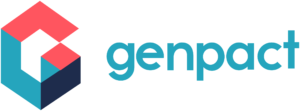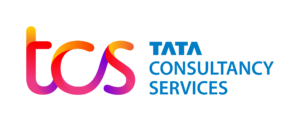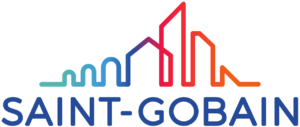
Looking to take your career to the next level?
Look no further than our data science course!
Enroll in Our Data Analytics Course and Secure Your Future - Get a Free Laptop and 100% Assistance Today
ABOUT THE COURSE
You love Data scientists. And now you’re building a career as a Data scientist.
This course will give you everything to build a career as a Data scientist.
- Learn to collect, clean, and analyze data to gain valuable insights.
- Master data visualization and communication to effectively present your findings.
- Explore machine learning techniques and algorithms to discover patterns in data.
- Build predictive models to make data-driven decisions and solve real-world problems.
- Acquire the in-demand skills needed to become a successful data scientist.
- Join the data revolution and launch your career in this exciting field.
This is the workplace of our mentees!
WHAT’S IN THE COURSE?
Do you want to know why Data Science has been labelled as the sexiest profession of the 21st century? After taking this course you will be able to answer this question, and get a thorough understanding of what is Data Science, what data scientists do, and learn about career paths in the field.
The art of uncovering the insights and trends in data has been around since ancient times. The ancient Egyptians used census data to increase efficiency in tax collection and they accurately predicted the flooding of the Nile river every year. Since then, people using data to derive insights and predict outcomes have carved out a unique and distinct field for the work they do. This field is data science. In today’s world, we use Data Science to find patterns in data, and make meaningful, data driven conclusions and predictions. This course is for everyone, and teaches concepts like Machine Learning, Deep Learning, and Neural Networks and how companies apply data science in business. You will meet several data scientists, who will share their insights and experiences in Data Science. By taking this introductory course, you will begin your journey into the thriving field that is Data Science!
In order to be successful in Data Science, you need to be skilled with using tools that Data Science professionals employ as part of their jobs. This course teaches you about the popular tools in Data Science and how to use them.
You will become familiar with the Data Scientist’s tool kit which includes: Libraries & Packages, Data Sets, Machine Learning Models, Kernels, as well as the various Open source, commercial, Big Data and Cloud-based tools. Work with Jupyter Notebooks, JupyterLab, RStudio IDE, Git, GitHub, and Watson Studio. You will understand what each tool is used for, what programming languages they can execute, their features and limitations. This course gives plenty of hands-on experience in order to develop skills for working with these Data Science Tools. With the tools hosted in the cloud on Skills Network Labs, you will be able to test each tool and follow instructions to run simple code in Python, R, or Scala. Towards the end the course, you will create a final project with a Jupyter Notebook. You will demonstrate your proficiency preparing a notebook, writing Markdown, and sharing your work with your peers.
If there is a shortcut to becoming a Data Scientist, then learning to think and work like a successful Data Scientist is it. Most of the established data scientists follow a similar methodology for solving Data Science problems. In this course you will learn and then apply this methodology that can be used to tackle any Data Science scenario.
The purpose of this course is to share a methodology that can be used within data science, to ensure that the data used in problem solving is relevant and properly manipulated to address the question at hand. Accordingly, in this course, you will learn: – The major steps involved in practicing data science – Forming a business/research problem, collecting, preparing & analyzing data, building a model, deploying a model and understanding the importance of feedback – Apply the 6 stages of the CRISP-DM methodology, the most popular methodology for Data Science and Data Mining problems – How data scientists think! To apply the methodology, you will work on a real-world inspired scenario and work with Jupyter Notebooks using Python to develop hands-on experience.
Kickstart your learning of Python with this beginner-friendly self-paced course taught by an expert. Python is one of the most popular languages in the programming and data science world and demand for individuals who have the ability to apply Python has never been higher.
This introduction to Python course will take you from zero to programming in Python in a matter of hours—no prior programming experience necessary! You will learn about Python basics and the different data types. You will familiarize yourself with Python Data structures like List and Tuples, as well as logic concepts like conditions and branching. You will use Python libraries such as Pandas, Numpy & Beautiful Soup. You’ll also use Python to perform tasks such as data collection and web scraping with APIs. You will practice and apply what you learn through hands-on labs using Jupyter Notebooks. By the end of this course, you’ll feel comfortable creating basic programs, working with data, and automating real-world tasks using Python. This course is suitable for anyone who wants to learn Data Science, Data Analytics, Software Development, Data Engineering, AI, and DevOps as well as a number of other job roles.
This mini-course is intended to for you to demonstrate foundational Python skills for working with data. This course primarily involves completing a project in which you will assume the role of a Data Scientist or a Data Analyst and be provided with a real-world data set and a real-world inspired scenario to identify patterns and trends.
You will perform specific data science and data analytics tasks such as extracting data, web scraping, visualizing data and creating a dashboard. This project will showcase your proficiency with Python and using libraries such as Pandas and Beautiful Soup within a Jupyter Notebook. Upon completion you will have an impressive project to add to your job portfolio. PRE-REQUISITE: **Python for Data Science, AI and Development** course from IBM is a pre-requisite for this project course. Please ensure that before taking this course you have either completed the Python for Data Science, AI and Development course from IBM or have equivalent proficiency in working with Python and data. NOTE: This course is not intended to teach you Python and does not have too much instructional content. It is intended for you to apply prior Python knowledge.
Working knowledge of SQL (or Structured Query Language) is a must for data professionals like Data Scientists, Data Analysts and Data Engineers. Much of the world’s data resides in databases. SQL is a powerful language used for communicating with and extracting data from databases.
In this course you will learn SQL inside out- from the very basics of Select statements to advanced concepts like JOINs. You will: -write foundational SQL statements like: SELECT, INSERT, UPDATE, and DELETE -filter result sets, use WHERE, COUNT, DISTINCT, and LIMIT clauses -differentiate between DML & DDL -CREATE, ALTER, DROP and load tables -use string patterns and ranges; ORDER and GROUP result sets, and built-in database functions -build sub-queries and query data from multiple tables -access databases as a data scientist using Jupyter notebooks with SQL and Python -work with advanced concepts like Stored Procedures, Views, ACID Transactions, Inner & Outer JOINs Through hands-on labs and projects, you will practice building SQL queries, work with real databases on the Cloud, and use real data science tools. In the final project you’ll analyze multiple real-world datasets to demonstrate your skills.
Analyzing data with Python is an essential skill for Data Scientists and Data Analysts. This course will take you from the basics of data analysis with Python to building and evaluating data models.
Topics covered include: – collecting and importing data – cleaning, preparing & formatting data – data frame manipulation – summarizing data – building machine learning regression models – model refinement – creating data pipelines You will learn how to import data from multiple sources, clean and wrangle data, perform exploratory data analysis (EDA), and create meaningful data visualizations. You will then predict future trends from data by developing linear, multiple, polynomial regression models & pipelines and learn how to evaluate them. In addition to video lectures you will learn and practice using hands-on labs and projects. You will work with several open source Python libraries, including Pandas and Numpy to load, manipulate, analyze, and visualize cool datasets. You will also work with scipy and scikit-learn, to build machine learning models and make predictions. If you choose to take this course and earn the Coursera course certificate, you will also earn an IBM digital badge.
One of the most important skills of successful data scientists and data analysts is the ability to tell a compelling story by visualizing data and findings in an approachable and stimulating way. In this course you will learn many ways to effectively visualize both small and large-scale data. You will be able to take data that at first glance has little meaning and present that data in a form that conveys insights.
This course will teach you to work with many Data Visualization tools and techniques. You will learn to create various types of basic and advanced graphs and charts like: Waffle Charts, Area Plots, Histograms, Bar Charts, Pie Charts, Scatter Plots, Word Clouds, Choropleth Maps, and many more! You will also create interactive dashboards that allow even those without any Data Science experience to better understand data, and make more effective and informed decisions. You will learn hands-on by completing numerous labs and a final project to practice and apply the many aspects and techniques of Data Visualization using Jupyter Notebooks and a Cloud-based IDE. You will use several data visualization libraries in Python, including Matplotlib, Seaborn, Folium, Plotly & Dash.
Get ready to dive into the world of Machine Learning (ML) by using Python! This course is for you whether you want to advance your Data Science career or get started in Machine Learning and Deep Learning.
This course will begin with a gentle introduction to Machine Learning and what it is, with topics like supervised vs unsupervised learning, linear & non-linear regression, simple regression and more. You will then dive into classification techniques using different classification algorithms, namely K-Nearest Neighbors (KNN), decision trees, and Logistic Regression. You’ll also learn about the importance and different types of clustering such as k-means, hierarchical clustering, and DBSCAN. With all the many concepts you will learn, a big emphasis will be placed on hands-on learning. You will work with Python libraries like SciPy and scikit-learn and apply your knowledge through labs. In the final project you will demonstrate your skills by building, evaluating and comparing several Machine Learning models using different algorithms. By the end of this course, you will have job ready skills to add to your resume and a certificate in machine learning to prove your competency.
This is the final course in the IBM Data Science Professional Certificate as well as the Applied Data Science with Python Specialization. This capstone project course will give you the chance to practice the work that data scientists do in real life when working with datasets.
In this course you will assume the role of a Data Scientist working for a startup intending to compete with SpaceX, and in the process follow the Data Science methodology involving data collection, data wrangling, exploratory data analysis, data visualization, model development, model evaluation, and reporting your results to stakeholders. You will be tasked with predicting if the first stage of the SpaceX Falcon 9 rocket will land successfully. With the help of your Data Science findings and models, the competing startup you have been hired by can make more informed bids against SpaceX for a rocket launch. In this course, there will not be much new learning, instead you’ll focus on hands-on work to demonstrate and apply what you have learnt in previous courses. By successfully completing this Capstone you will have added a project to your data science and machine learning portfolio to showcase to employers.
WHAT’S IN THE COURSE?
- You have a passion for analyzing and interpreting data to derive insights and solve complex problems.
- You have a background in mathematics, statistics, computer science, or a related field.
- You are comfortable working with large datasets and have experience with data manipulation, cleaning, and visualization.
- You have experience with programming languages such as Python or R, and are comfortable using data analysis libraries such as Pandas, NumPy, and Matplotlib.
- You are interested in applying machine learning algorithms to real-world data problems.
- You are excited about learning new techniques and technologies in the rapidly-evolving field of data science.
- You want to apply your skills to a variety of industries, such as finance, healthcare, marketing, or social media.
- You are looking for a career in data science, either as a data analyst, data scientist, or machine learning engineer.
Wait - You Still Here? You’ll probably need to have a Look what Google Stats show about Data Scientist Job Opportunities
In 2023, Data scientists are in high demand; it’s a secure & evergreen job field. In Job websites like naukri.com, indeed.com, Linkedin.com, etc. total of 15,55,567 Data Scientist job openings has been listed. Every Business seeks Data Scientist.
- High demand: With the explosion of big data and the increasing importance of data-driven decision-making, there is currently a high demand for skilled data scientists in many industries.
- Interesting work: Data science involves working with large and complex datasets to extract insights and solve problems. For those who enjoy problem-solving and working with data, it can be a very interesting and rewarding career.
- Good pay: Data scientists are typically well-compensated due to their specialized skills and high demand. According to Glassdoor, the national average salary for a data scientist in the United States is over $100,000 per year.
- Opportunity for growth: Data science is a relatively new field, so there is a lot of room for growth and advancement. Many data scientists eventually move into leadership or management roles, or start their own businesses.
- Flexibility: Many data science jobs allow for remote work, flexible schedules, and a good work-life balance.
Frequently Asked Questions
Data science is the process of collecting, storing, and analyzing data. Data scientists use data to tell compelling stories to inform business decisions. Learn more about what data science is and what data scientists do in the first course of this Professional Certificate, “What is Data Science?”
An understanding of data science and the ability to make data driven decisions is useful in any career, but some careers specifically require a data science background. Some examples of careers in data science include:
– Business Intelligence Analyst
– Data Analyst
– Data Architect
– Data Engineer
– Data Scientist
– Machine Learning Engineer
– Marketing Analyst
– Operations Analyst
– Quantitative Analyst
This Professional Certificate is open for anyone with any job and academic background. No prior computer programming experience is necessary, but is an asset, as are familiarity working with computers, high school math, and communication and presentation skills. For the last few courses, knowledge of calculus and linear algebra is an asset but not an absolute requirement.
Yes, it is highly recommended to take the courses in the order they are listed, as they progressively build on concepts taught in previous courses. For example the Data Analysis, Data Visualization, and Machine Learning courses require knowledge of Python covered earlier in the program.
Become job ready for a career in Data Science. Develop practical skills using hands-on labs in Cloud environments, projects and captsones.
Yes, absolutely. Any courses that you have already completed as part of that Specialization will be marked as “Complete”. You do not have to take those courses again and will be able to finish this Professional Certificate more quickly.












